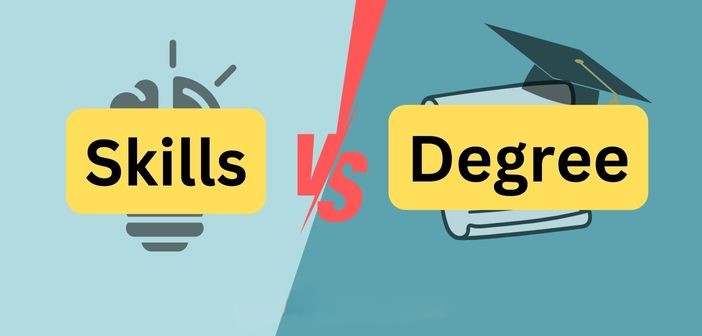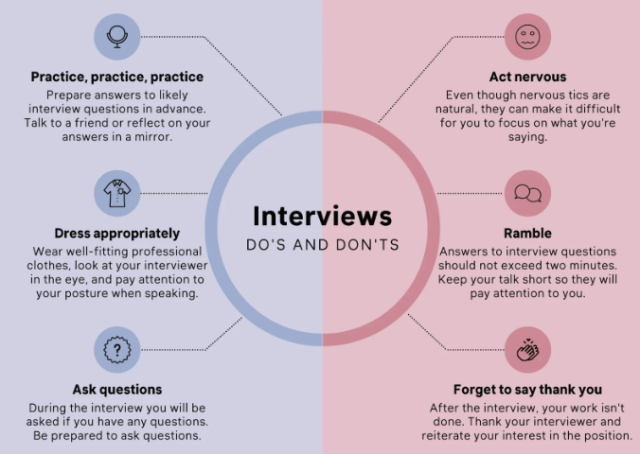The Crisis of Empty Degrees in a Hungry Job Market
By: Javid Amin
Picture this: Aakash, a 23-year-old engineering graduate from a reputed college in Mumbai, spends months applying for jobs. He has a first-class degree, aced his exams, and even topped his class in theoretical subjects. Yet, he’s rejected repeatedly. Why? “You lack hands-on experience with cloud platforms,” one employer says. “Can you debug this code in Python?” asks another. Aakash’s story isn’t unique—it’s the reality for 15 lakh Indian engineers graduating annually, of whom 80% are unemployable in the tech sector, according to a 2024 Aspiring Minds report.
India’s job market is caught in a paradox: 1.5 million colleges churn out graduates yearly, yet industries scream about a “skills famine.” Companies like TCS, Infosys, and startups like Zomato and Ola scramble to upskill hires, spending ₹15,000–20,000 crore annually on training fresh recruits. Meanwhile, youth unemployment hovers at a worrying 23%, per World Bank data.
This isn’t just a “problem”—it’s a generational emergency. By 2030, India will house the world’s largest working-age population (1.04 billion). But without urgent reforms, we risk squandering this “demographic dividend” into a “demographic disaster.”
Why India’s Education System is Stuck in the 20th Century
The Colonial Hangover: Rote Learning vs. Real-World Skills
India’s education system, designed in 1854 under Lord Macaulay, was built to produce clerks for the British Empire. 176 years later, little has changed:
-
Curriculum: Focuses on memorizing outdated textbooks (e.g., C++ taught in AI era).
-
Assessment: 3-hour exams decide futures, ignoring creativity or problem-solving.
-
Faculty: 65% of engineering professors lack industry exposure (AICTE, 2023).
Result: Graduates who can’t write clean code, troubleshoot servers, or use Git. Infosys co-founder Narayana Murthy’s blunt take: *“We produce engineers fit for 1980s factories, not 21st-century innovation labs.”*
The Cost of Obsolescence
-
Economic Loss: India loses $8.5 billion annually due to tech skill shortages (Nasscom).
-
Global Lag: Only 5 Indian universities rank in the top 300 globally (QS 2025).
-
Employer Distrust: 72% of IT firms prefer training in-house over campus hires (Deloitte).
Case Study: Hyderabad’s “Tech Mahindra fiasco” (2024)—2,000 graduates hired from tier-2 colleges were let go within months due to inability to handle DevOps tools.
The New-Age Curriculum Blueprint – Skills That Pay the Bills
Pillars of a Future-Proof Education
The solution isn’t tweaking syllabi—it’s a revolution. Meet the 4E Framework:
-
Experience-First Learning: Code from Day 1, not Year 3.
-
Emerging Tech Immersion: AI/ML, Blockchain, IoT, Cybersecurity.
-
Employer Partnerships: Microsoft, AWS, and Cisco designing courses.
-
Ethical Mindset: Sustainability, data privacy, and AI ethics.
Example: Scaler School of Technology’s (SST) students build blockchain-based land registries in Phase 1—no “Hello World” drills.
Breaking Down the SST Model
-
Phase 1 (0–6 months):
-
Foundations: Python, DSA, Cloud basics (AWS/Azure).
-
Projects: Develop a weather app using real-time APIs.
-
Mentors: Ex-Google engineers review code weekly.
-
-
Phase 2 (6–18 months):
-
Specializations: AI, DevOps, or Full-Stack.
-
Internships: 6-month paid stints at Razorpay or Cure.fit.
-
Hackathons: Solve problems like Aadhaar data security.
-
-
Phase 3 (18–24 months):
-
Capstone Projects: Partner with ISRO to optimize satellite data.
-
Global Certifications: AWS Cloud Practitioner, Google Analytics.
-
Outcome: 92% placement rate with ₹18 LPA average salary (2024 SST data).
Industry Speaks – “We Need Doers, Not Theorists”
Voices from the Frontlines
-
Rahul Sharma (CTO, Paytm): “We’d hire a 12th grader who built a fintech app over an MTech grad who can’t deploy a model.”
-
Nivetha Jayakumar (SST Alumnus, Now at Unacademy): “My internship at Flipkart taught me Agile workflows—something my college never mentioned.”
-
Radhika Gupta (CEO, Edelweiss MF): “Soft skills matter! Kids can’t present ideas or work in teams.”
Top 5 Skills Employers Crave (LinkedIn 2025 Report):
-
Cloud Architecture (AWS/Azure/GCP)
-
AI/ML Model Deployment
-
Cybersecurity Threat Analysis
-
DevOps Automation (Kubernetes, Docker)
-
Cross-Functional Collaboration
Missing in Grads: Problem-solving (68%), Critical thinking (61%), Coding (57%).
Government & Policy – From Talk to Action
NEP 2020: A Ray of Hope?
The National Education Policy’s “skill-integration” mandate includes:
-
Credit for Internships: 50+ hours of industry projects compulsory.
-
Faculty Training: ₹500 crore allocated to upskill teachers in AI/Data Science.
-
AR/VR Labs: 10,000 Atal Tinkering Labs upgraded by 2026.
But Challenges Remain:
-
Bureaucratic Delays: Only 30% of colleges revised curricula by 2025.
-
Rural-Urban Divide: 80% of tier-3 colleges lack cloud computing labs.
States Leading the Change
-
Karnataka: Partnered with Coursera to offer free IBM certifications to graduates.
-
Telangana: “Code Telangana” initiative trains 1 lakh students in Python annually.
-
Punjab: Mandatory 6-month farm tech internships for agriculture students.
The Road Ahead – Making Skill-Based Education the Norm
A 5-Point Action Plan
-
Corporate Academies: Tata’s “Techademy” and Infosys’ “Springboard” should scale nationally.
-
Faculty Fellowships: Rotate professors through 6-month industry residencies.
-
Degree Reset: Replace 4-year B.Tech with 2-year diplomas + 2-year specialization.
-
Rural Reach: Mobile coding vans with Starlink internet for villages.
-
Employer Tax Breaks: Companies hiring skill-certified grads get 150% tax deductions.
Success Stories to Emulate
-
Andhra’s “Skill University”: 70% of graduates placed in IoT firms within 3 months.
-
Masai School: 0% tuition until you land a job—4,000+ placed since 2023.
-
GUVI (IIT-Madras): Vernacular coding platforms upskilling 2 lakh Tamil/Dhindhi speakers.
Bottom-Line: Rewriting the Future – A Call to Arms
India stands at a crossroads: cling to archaic degrees and watch millions languish in unemployment or embrace a skills-first revolution that could make us the global talent powerhouse. The playbook is clear:
-
Students: Choose institutions that value projects over marksheets.
-
Colleges: Partner with Flipkart, not just textbook publishers.
-
Policymakers: Reward skill hubs, not just “A-grade” universities.
As Narayana Murthy says, “Let’s build a India where a plumber with IoT skills earns more than an unemployable MBA.” The time to act is now—before the next Aakash gives up and drives an Uber.




